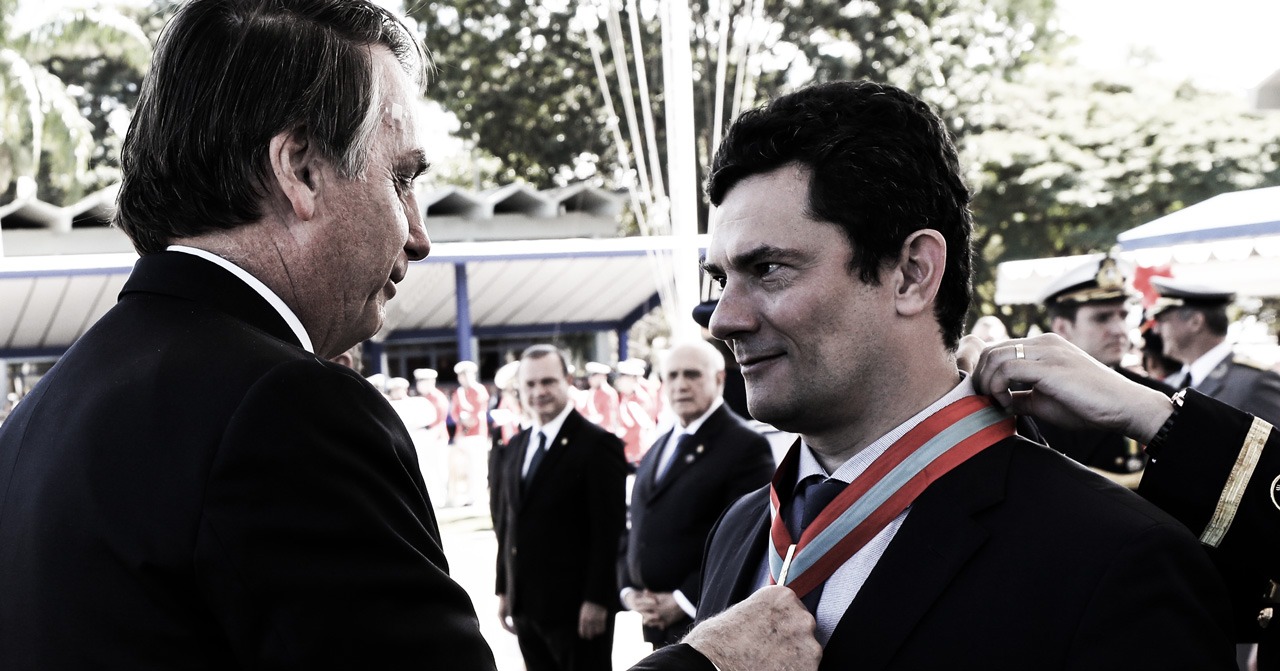For years, the media treated far-right Lava Jato Judge Sergio Moro as a superhero. Now he’s facing felony charges
by Brian Mier
In a landmark ruling on March 23, 2021, the Brazilian Supreme Court Second Working Group ruled that Sergio Moro, the judge who imprisoned former President Lula and opened the door for the presidential victory of Jair Bolsonaro – later serving as his Justice Minister – is suspect of felony judicial partiality.
In a roller coaster day which saw recent Bolsonaro Court appointee Nunes Marques turn the tables only to have Minister Carmen Lucia reverse her vote at the last minute, Moro will now be subject to a full investigation as to whether his election season imprisonment of Lula for indeterminate acts of corruption with no material evidence presented, based on an investigation that he was allowed to supervise and rule on with no jury, was politically motivated.
As Supreme Court President, Minister Carmen Lucia was sympathetic to both the 2016 coup against Dilma Rousseff and the exception to the Brazilian Constitution made to enable Lula’s 2018 imprisonment. Her last minute reversal, therefore, shocked many – to the euphoria of supporters of the former President and the dismay of Globo TV network, which gave heroes–treatment to former Judge Moro for years.
While specifying that her ruling only applies to the former triplex apartment case, which was reversed by the Supreme Court earlier this month due to illegal forum shopping by the Lava Jato task-force, Lucia gave 4 justifications for the argument that Moro did not act as an impartial judge while convicting former President Lula:
1) Creating a spectacle over Lula’s March 4, 2016 testimony in the triplex apartment case.
On this day, Lula had already agreed to voluntarily come in for questioning, but Moro ordered a heavily armed Federal Police escort for the former President and invited all of the TV networks to film it, timing the event so it could be transmitted live on the morning news programs. This seemed like such a clear example of bias at the time that Brasil Wire published an article about it on the day that it happened.
2) Ordering illegal wire tapping of Lula, his defense team’s law office and his family members.
For a period of over a month, under Sergio Moro’s orders, the federal police illegally wire tapped Lula’s defense team’s law office in order to create a org-chart to map out future possible moves of the defense. This crime would have resulted in the immediate debarring of any judge who authorized it anywhere else in the world, according to defense lawyer Valeska Martins in this 2018 interview.
3) Selectively editing sections of illegally wire tapped conversations to damage Lula’s reputation and leaking them to the media during the pre-trial and trial periods.
Proof that this editing was done deliberately was revealed by the hacker Walter Delgatti in 2019.
4) Selectively editing excerpts of sealed plea bargain testimony (that had already been dismissed as evidence by a São Paulo judge) made by Antonio Palocci to damage Fernando Haddad’s image and releasing it to Globo one week before the 2018 first-round presidential elections, as we documented in October, 2018.
In the middle of Brazil’s worst public health crisis in history, on a day in which over 3000 people died due to the illegitimate Bolsonaro government’s criminal mishandling of the Covid 19 pandemic, the Supreme Court ruling appears as a glimmer of hope to millions of Brazilians who have entered into despair during the past 5 years watching the US DOJ/SEC/FBI backed Lava Jato investigation commit sabotage against key sectors of Brazilian industry, slander the reputation of the Workers Party and its leaders and empower the rise to the presidency of a genocidal maniac who is facing charges of crimes against humanity in the Hague.
This March started with former President Lula fighting to appeal criminal convictions in a court located in a city and state he never lived in, and former Judge Sergio Moro cited by polling agencies as a possible presidential hopeful for 2022. It’s closing with Lula completely free of all Lava Jato charges with restored political rights, leading all polls for the presidency while judge whose charges were reversed is facing a felony investigation.
[qpp]

